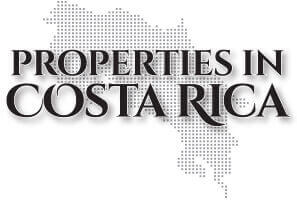Buying a vacation home with cash is a dream of many people. In fact, paying by cash used to be the only way to purchase property in Costa Rica. It remains the easiest way to secure real estate in the country, with buyers having more power to negotiate without dealing with stringent real estate financing.
However, paying cash is not always possible for many interested homebuyers. So what other options are available?
Here are three ways foreigners can finance a house in Costa Rica.
1. Local Banking
The banking system in Costa Rica can be divided into two categories: public and private banks. Public banks, those owned by the government, have been the dominant financial providers in the country for many years. Most foreigners end up dealing with either Banco Nacional or Banco de Costa Rica when seeking real estate financing from a public bank.
Private banking was not available in Costa Rica until a law change in 1996, which allowed them to accept consumer deposits. These local private banks have started aggressively offering mortgages to foreigners in the past few years.
The largest of these private banks is BAC San Jose, which is a division of BAC International. Other private banking options include Scotiabank, HSBC, and CitiBank.
Although the slowdown in the global economy has scaled back Costa Rican banks from marketing to foreigners, these efforts will surely get back on track once the markets begin moving once again.
2. Local Mortgage
For those looking to purchase a new home or condominium from an experienced developer, there is a good chance that the agent has a relationship with a bank that already agreed to provide real estate financing.
According to Paperless Pipeline, real estate financing is an approach where a buyer secures a method to fund their real estate purchase. Pre-approved financing can be very beneficial.
The main advantage is that a pre-approved development for financing through a bank is one that has undergone proper research. This means that everything from reviews of the value and structure to title searches has been analyzed. It also means that the property is in good shape.
However, this does not mean that the price given to foreign buyers is fair. Although the bank will hire an expert to estimate the value of a property, it also sends in a second expert to review it before granting loans. This assessed value could be higher or lower than what was initially assessed by the bank and what a buyer has agreed to pay.
If you require a mortgage but will not be buying from a developer, you can shop around and see what the different banks have to offer. The banks mentioned earlier already have programs aimed at foreigners and should be willing to provide their products to you.
3. Foreign Mortgage
Although banks that are not domiciled in Costa Rica are not allowed to advertise their services, providing them to clients is a different matter. With the rest of the world catching wind of its real estate boom and tourist attractions, many foreign banks have started offering mortgages in the country.
These deals are legal, and the terms they provide are quite competitive with what you can find in the United States. But how does one find these loans? Stewart Title is one place you can explore.
Stewart Title is a provider of title insurance and information services needed for the settlement of real estate and mortgage industries. It has ties to the United States and international markets through a network of owned operations. The company connects lenders with borrowers and vice versa.
Other places where interested buyers can find leads regarding a foreign bank include real estate brokers, lawyers, or the developer selling the property in Costa Rica. If all else fails, it could never hurt to ask a local bank where you live. Although they may not offer a specific program, they could still be open to the idea of financing foreign real estate.
After finding a bank that offers a loan for buying a property overseas, the process is similar to a normal application in the United States. Your credit score will be analyzed against your assets and income, and the bank will either approve or deny your application.
In the past, some individuals were able to buy a home in Costa Rica by using a home equity loan. This may be difficult to do at the moment, given the current financial environment.
Conclusion
The housing market in Costa Rica remains strong. Buyers from the United States are one of the key factors driving property demand.
People who wish to purchase a house in Costa Rica have three primary options to choose from if they cannot pay by cash. Dealing with local banks and getting a mortgage are the primary choices for real estate financing in the country.
